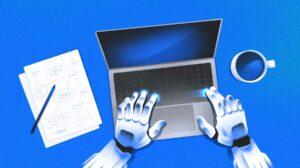MX3 Diagnostics, which enables athletes to test their hydration status through saliva samples, is on the cusp of closing a seed round.
Subscribe to the Crunchbase Daily
MX3, which splits operations between Melbourne and Austin, touts its product as portable, immediate and noninvasive – hence spit versus blood. This, it hopes, will appeal to a broader base of customers, said MX3 CEO and co-founder Michael Luther.
Essentially, users turn on a hand-held device about the size of a remote control, insert a “test strip” into the device and then applies it to their tongue. Once they get a microliter of saliva from the tip of their tongue, a beep sounds, and the measurement is made. The device syncs with an app, which will then indicates their level of hydration.
Luther told me the company is working on testing for electrolyte balance, sleep patterns and diet and nutrition through this method – however right now, the product only tracks hydration levels.
The target customers are individuals concerned enough with their hydration to invest in a product focused on it, mainly by athletes, sports teams or elite trainers, Luther said.
So far, the company has experimented with the Swedish national soccer team. It is also working with a number of “high profile university athletic departments across the country,” Luther said.
When it comes to rapid diagnostics, most people think of wearables – an industry some say will reach $27 billion by 2022. Luther said he thinks that the industry is fairly commoditized, and underserved.
Right now, “wearables are just limited to what you can gather from the surface of the skin,” he said. “So while there are innovations happening all over the world, they’re happening from a surface level.”
Minneapolis-based nūrio CEO Ian Rowan somewhat disagrees. His company created a small wearable that measures brain waves and tracks mental health patterns.
He says that taking data from an invasive route will always give you raw data that is “closer and closer to the truth.” But due to advancements in wearable technologies, a wearable can get you equally as close.
Rowan added that nūrio is trying to make its product cheaper so more people can access it: Currently, it prices around $129 to $200 with plans to go to market in 2020.
Wearables in general, while marketed to make on-demand health data more accessible, are on the steep-end of pricing. MX3, as mentioned, sells for $750. For context another company, LetsGetChecked, sells on-demand lab tests, and has a $49 diabetes test. This isn’t bad compared to tests that cost thousands of dollars through a doctor’s office, but it’s still not cheap.
Ultimately Peter Foley, the CEO and founder of LetsGetChecked, reminded me that as much as tracking, and owning your health is important, data only helps so much.
In most cases, answers about how you’re doing health-wise are time sensitive, he said, “it’s often only a reflection of what’s happening at that moment.”
Illustration Credit: Li-Anne Dias
Editor’s note: A previous version of this article had the wrong price for LetsGetChecked tests. The price has been updated to reflect the correct number.

Stay up to date with recent funding rounds, acquisitions, and more with the Crunchbase Daily.



![Illustration of stopwatch - AI [Dom Guzman]](https://news.crunchbase.com/wp-content/uploads/Halftime-AI-1-300x168.jpg)




67.1K Followers